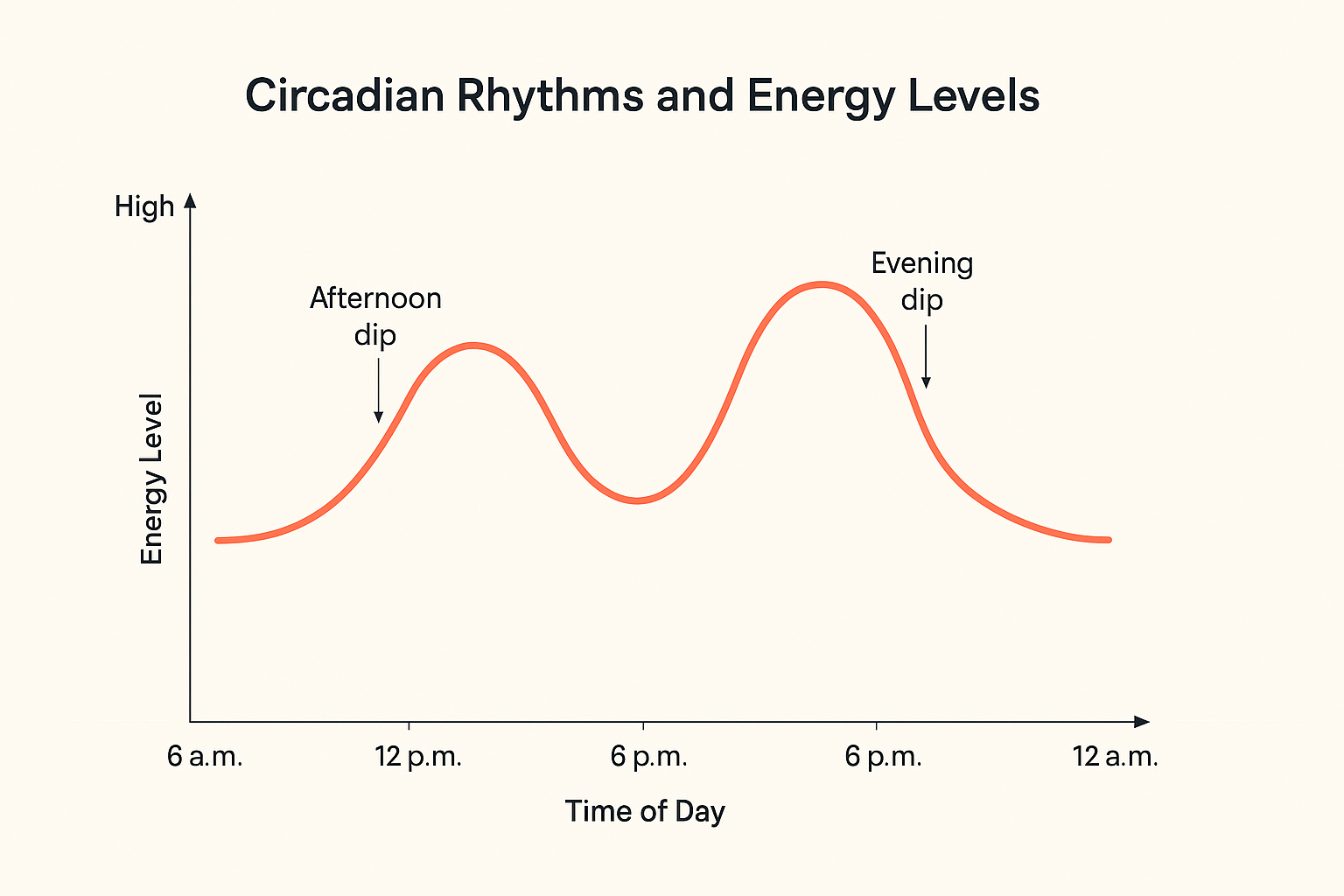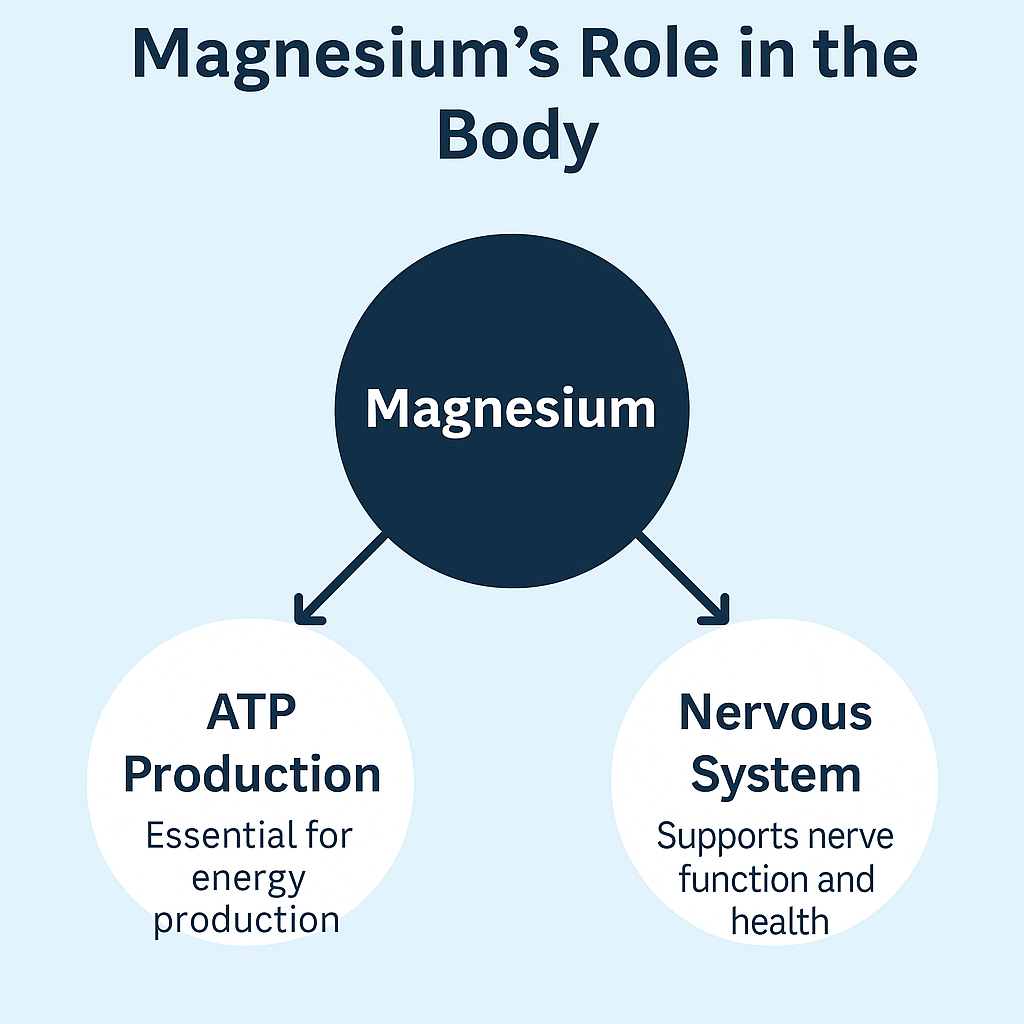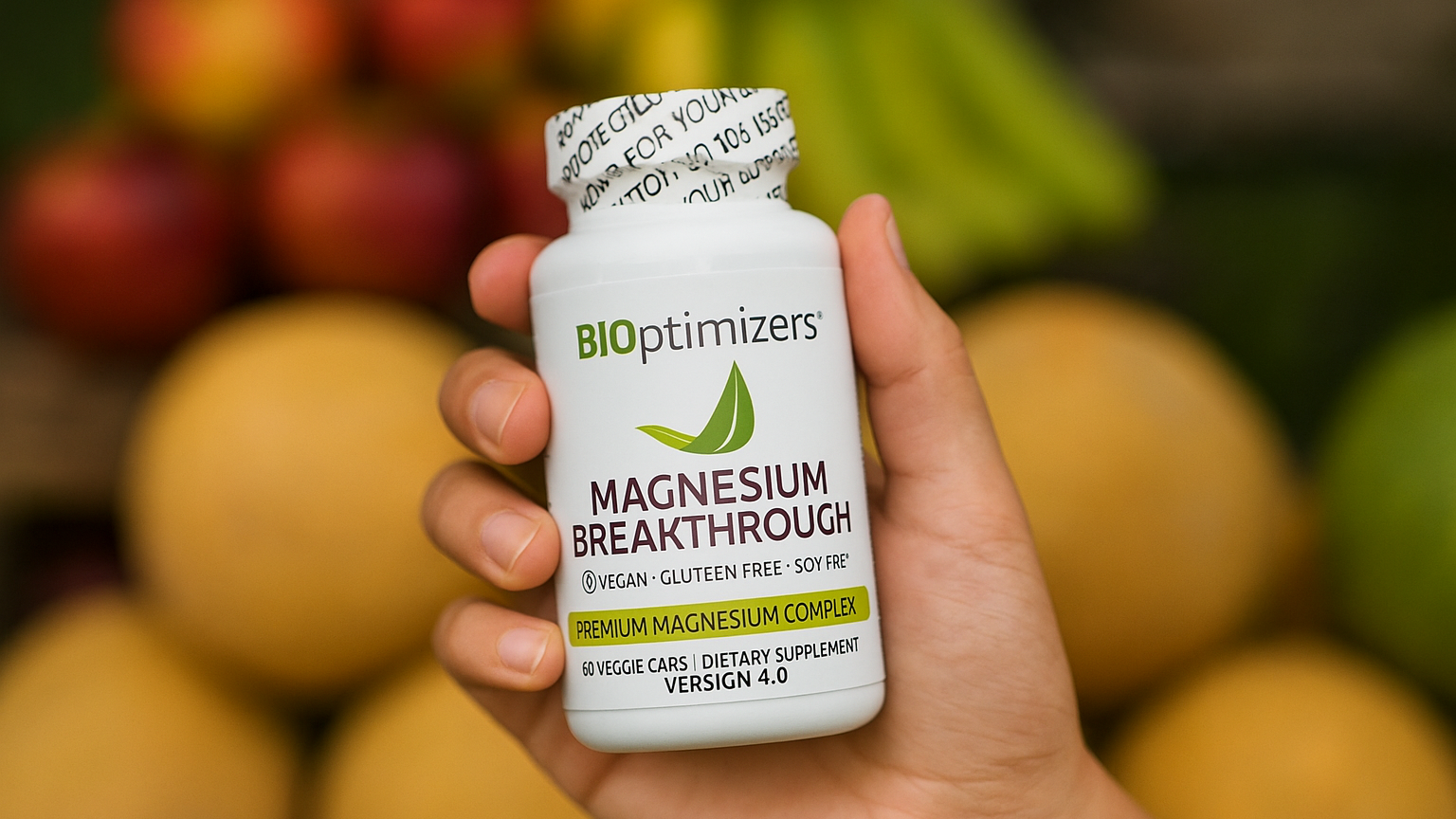It Wasn’t My Diet — It Was This Missing Nutrient Draining My Energy
Research shows that energy dips around 2 to 4 p.m. are common — but they’re not inevitable. After months of testing different foods, routines, and even sleep trackers, I discovered that my problem wasn’t behavioural at all.
It was biological — specifically, a magnesium deficiency. This one overlooked mineral was silently draining my energy every afternoon.
Once I started with a magnesium supplement, my body finally rebalanced — and I experienced steady, lasting energy all day long.
Table of Contents
1. The Afternoon Crash: Why It Happens to Almost Everyone
Many people hit a wall in the afternoon, and it’s not just in your head. Our circadian rhythm dips between 2 to 4 p.m., naturally lowering alertness. Combine that with a heavy lunch, spiking and crashing blood sugar, or poor-quality sleep, and you’ve got the perfect recipe for brain fog and fatigue.
Add to that our over-reliance on stimulants like coffee, and you’re left with short bursts of energy followed by inevitable crashes. While it’s tempting to reach for a quick fix, it rarely addresses the root cause.

2. How I Tried (and Failed) to Fix It with Lifestyle Hacks
Like most people, I started with what seemed like obvious solutions. I optimized my morning routine, walked after lunch, and even tried cold showers. I cut sugar, added more protein, and limited caffeine to the morning.
Despite all of this, I still felt like a zombie by 3 p.m. It was frustrating because I genuinely believed I was doing everything “right.” But deep down, I knew something was still off.

3. The Eye-Opening Discovery: My Hidden Deficiency
Eventually, I ran a few at-home health tests and spoke with a functional nutritionist. The verdict? I was deficient in magnesium.
I had no idea how crucial magnesium is for energy production. It supports ATP (our cellular energy molecule), muscle function, stress response, and nervous system regulation. No wonder I was crashing hard without it.
The more I read, the more I realized: up to 50% of people are magnesium deficient and don’t even know it.

4. The Supplement That Changed Everything
What finally worked wasn’t another coffee, nap, or productivity hack — it was magnesium.
Specifically, I started using a supplement called Magnesium Breakthrough by BioOptimizers. It includes all 7 essential forms of magnesium, which made a big difference in how my body absorbed it compared to the cheaper, generic brands I’d tried before.
Within just a few days, my energy was noticeably steadier. No jitters. No crash. Just focus and calm that lasted through the afternoon.
I honestly didn’t expect it to work this well — but I’m glad I gave it a shot.

5. How I Use It Today (and What I Stopped Doing)
I take two capsules of Magnesium Breakthrough around 10 a.m., after my first meal. This timing helps buffer my afternoon energy window, and I find it also improves my sleep quality at night.
Interestingly, since taking it regularly:
- I stopped needing a second coffee.
- I don’t crave sugar around 3 p.m.
- My focus holds steady into the evening.
I also stopped overcomplicating my diet. Turns out, I didn’t need another new routine. I just needed to restore what was missing.

6. Who This Supplement Is For — And Who Should Avoid It
This isn’t a magic pill — but if you deal with any of these symptoms, it’s worth looking into:
- Afternoon fatigue or brain fog
- Trouble sleeping despite feeling tired
- Muscle cramps, anxiety, or irritability
- High stress levels or coffee dependence
However, if you’re already on medications or have kidney issues, speak to a healthcare provider before starting any supplement regimen.
7. Final Thoughts: Sustainable Energy Doesn’t Have to Be Complicated
I spent months trying to fix a problem with surface-level hacks. But once I addressed the underlying deficiency, everything started falling into place.
I share this not as medical advice, but as personal experience. Sometimes, one small shift can unlock the sustainable energy and focus we’ve been chasing for years.
8. Friendly Recommendation: Try It for Yourself
If you’re feeling constantly drained or dealing with unpredictable energy crashes, Magnesium Breakthrough might be worth a look.
It’s the one supplement I always recommend to friends. No hype. Just something that genuinely helped me.
👉 You can check it out here if you’re curious — they even offer a 100% money-back guarantee.
Just friendly advice from someone who’s been there — and finally got their energy back.
Frequently Asked Questions (FAQ)
Can magnesium really help with energy levels?
Yes — magnesium is essential for energy production at the cellular level. It helps convert food into usable energy (ATP), supports nervous system balance, and aids in muscle recovery. If you’re deficient (which many people unknowingly are), supplementing can significantly improve energy stability throughout the day.
What makes Magnesium Breakthrough different from other magnesium supplements?
Most magnesium supplements contain only 1–2 forms of magnesium, which limits absorption and effectiveness. Magnesium Breakthrough includes all 7 essential forms, which means your body gets a full-spectrum dose for maximum benefit — especially when it comes to reducing fatigue, stress, and sleep issues.
Is Magnesium Breakthrough safe to take daily?
Yes, for most people, it’s safe and well-tolerated when taken as directed. However, if you have kidney issues, are pregnant, or are taking medications, consult your healthcare provider first.
How long does it take to feel the effects?
Some people feel calmer and more focused within a few days, while deeper energy improvements and better sleep may take 1–2 weeks of consistent use. Results may vary depending on your individual magnesium levels and lifestyle.
Can I stop drinking coffee if I take magnesium?
You might not need that second or third cup of coffee anymore — many users (myself included) found their energy stabilized so much that coffee became optional. But you can still enjoy caffeine if you like, just with fewer of the afternoon crashes.
What drink increases magnesium?
Drinks rich in magnesium include mineral water, almond milk, coconut water, and green smoothies with leafy greens like spinach or kale. Some electrolyte drinks are also fortified with magnesium.
What is the best way to absorb magnesium?
Magnesium is best absorbed in chelated form (like glycinate or citrate), especially when taken with food. Supplements that combine multiple forms — like Magnesium Breakthrough — improve bioavailability and reduce digestive issues.
What fruit is full of magnesium?
Bananas, avocados, figs, and blackberries are all good sources of magnesium. While fruits aren’t the highest source, they can help support your intake alongside other foods or supplements.
What organs does low magnesium affect?
Magnesium deficiency can affect the heart, muscles, nervous system, and kidneys. Long-term deficiency may lead to fatigue, arrhythmias, muscle cramps, anxiety, and poor sleep quality.
